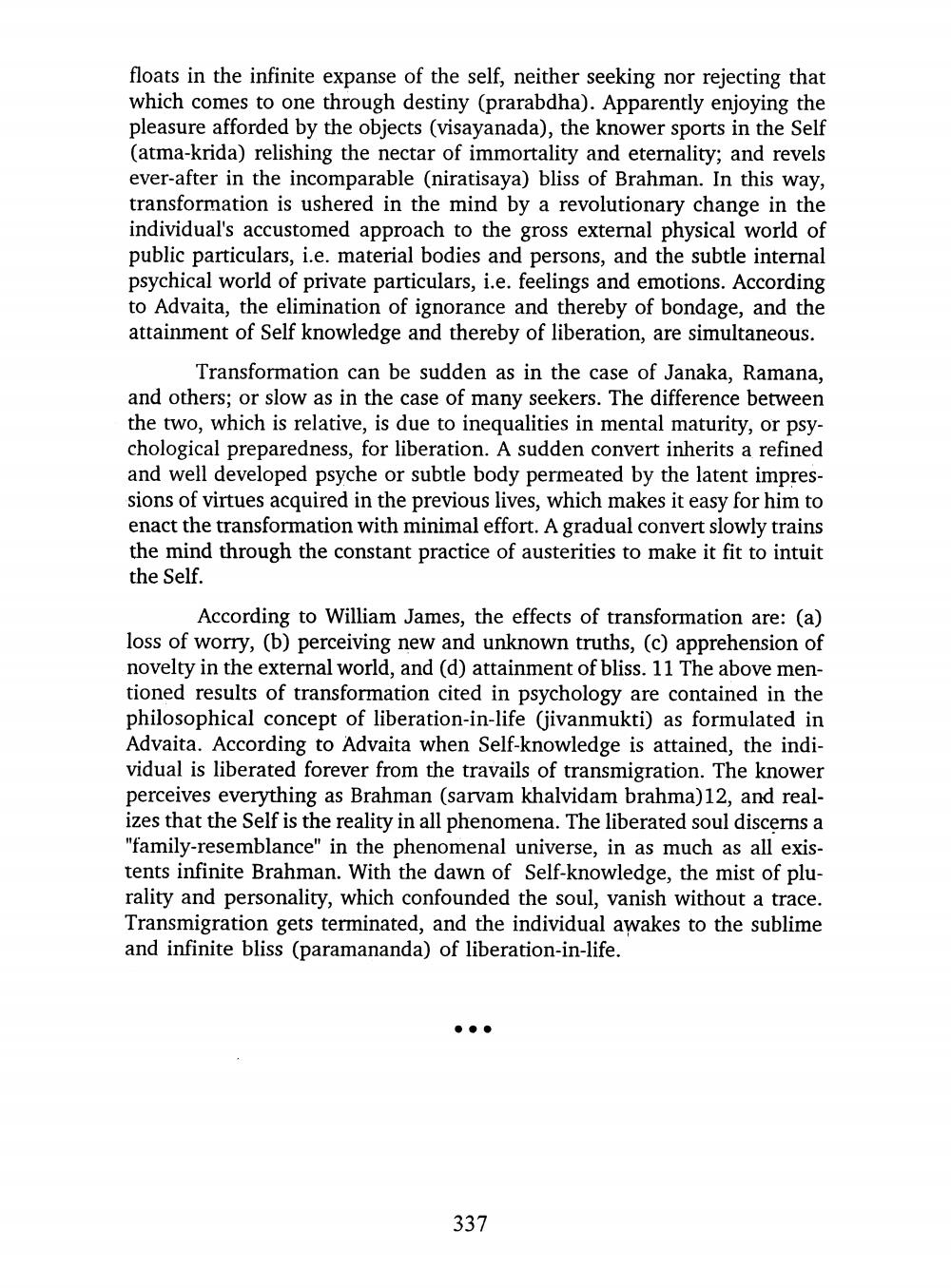________________
floats in the infinite expanse of the self, neither seeking nor rejecting that which comes to one through destiny (prarabdha). Apparently enjoying the pleasure afforded by the objects (visayanada), the knower sports in the Self (atma-krida) relishing the nectar of immortality and eternality; and revels ever-after in the incomparable (niratisaya) bliss of Brahman. In this way, transformation is ushered in the mind by a revolutionary change in the individual's accustomed approach to the gross external physical world of public particulars, i.e. material bodies and persons, and the subtle internal psychical world of private particulars, i.e. feelings and emotions. According to Advaita, the elimination of ignorance and thereby of bondage, and the attainment of Self knowledge and thereby of liberation, are simultaneous.
Transformation can be sudden as in the case of Janaka, Ramana, and others; or slow as in the case of many seekers. The difference between the two, which is relative, is due to inequalities in mental maturity, or psychological preparedness, for liberation. A sudden convert inherits a refined and well developed psyche or subtle body permeated by the latent impressions of virtues acquired in the previous lives, which makes it easy for him to enact the transformation with minimal effort. A gradual convert slowly trains the mind through the constant practice of austerities to make it fit to intuit the Self.
According to William James, the effects of transformation are: (a) loss of worry, (b) perceiving new and unknown truths, (c) apprehension of novelty in the external world, and (d) attainment of bliss. 11 The above mentioned results of transformation cited in psychology are contained in the philosophical concept of liberation-in-life (jivanmukti) as formulated in Advaita. According to Advaita when Self-knowledge is attained, the individual is liberated forever from the travails of transmigration. The knower perceives everything as Brahman (sarvam khalvidam brahma)12, and realizes that the Self is the reality in all phenomena. The liberated soul discerns a "family-resemblance" in the phenomenal universe, in as much as all existents infinite Brahman. With the dawn of Self-knowledge, the mist of plurality and personality, which confounded the soul, vanish without a trace. Transmigration gets terminated, and the individual awakes to the sublime and infinite bliss (paramananda) of liberation-in-life.
337




